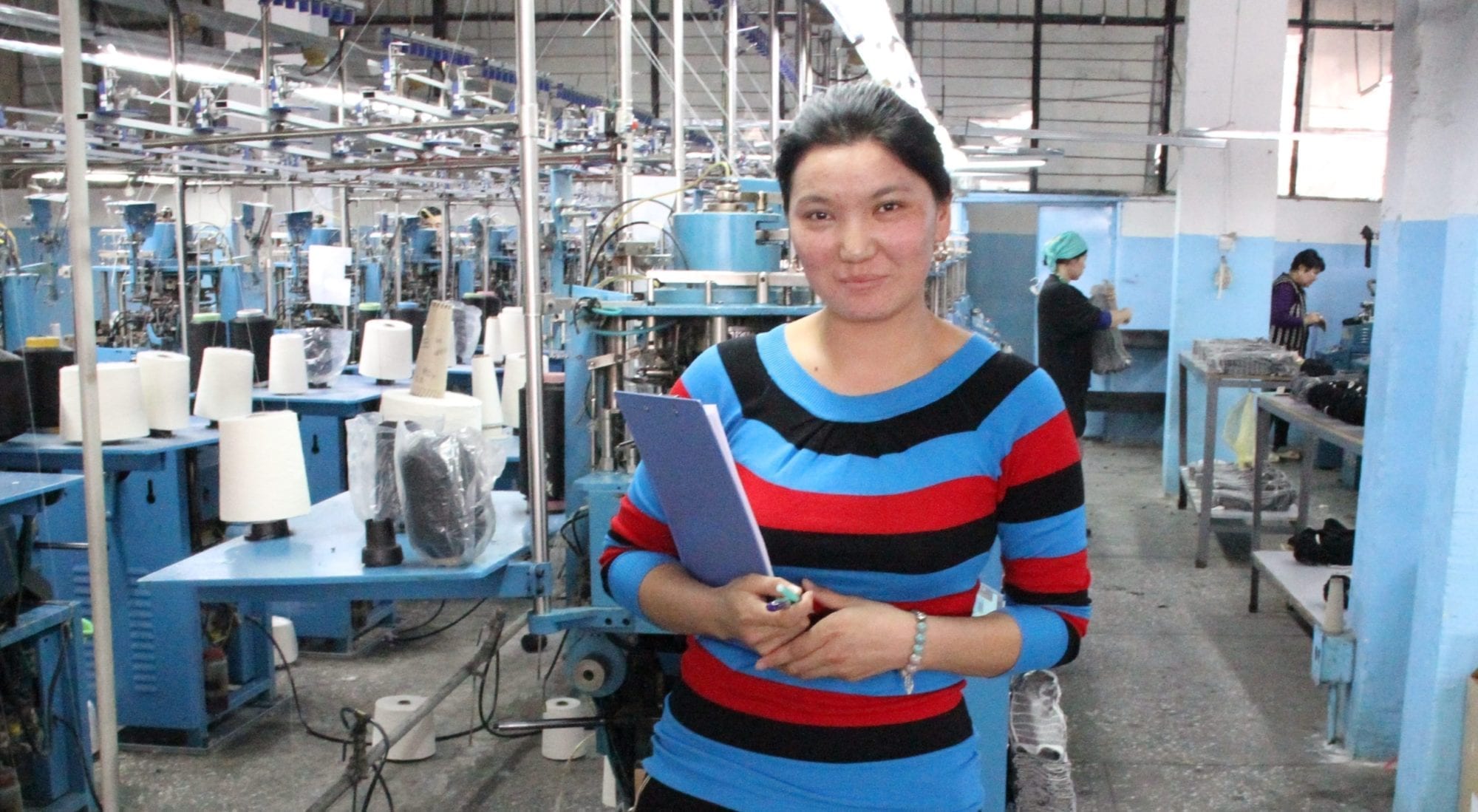As the global community gets set to mark International Youth Day August 12, young workers around the world faced with a lack of decent jobs increasingly are joining with union movements and worker associations to challenge policies that do not promote an economy that works for all.
An estimated 290 million young people are jobless and another 150 million are working but impoverished. Many of these 150 million workers are employed in the informal economy, with no guarantee of steady income or access to the benefits of stable employment. As a result, generations of young people are at risk of lifelong poverty and little hope of social mobility. In fact, the ILO identifies precarious employment in the informal economy as the number one impediment to solving global poverty.
But young workers like Kymbat Sherimbayeva are standing up for their rights to decent work and collective bargaining. The Kyrgyzstan garment worker recently joined with some 200 co-workers, most of whom are between the ages of 18 and 25, to improve wages and safety conditions. With the help of trainings provided by the Garment Workers’ Union of Kyrgyzstan, with Solidarity Center support, workers at the factory formed a union, recognizing they could negotiate improvements with management much more effectively as a group than as individuals.
“We are stronger when we are together,” says Sherimbayeva.
Unions also are reaching out to young workers to develop the next generation of leaders. From Kenya, Jane Njoki Muthoni works to enable young women advance to union leadership positions through her roles as president of the International Trade Union Confederation (ITUC)-Africa Young Workers Committee and youth leader for the Central Organization of Trade Unions (COTU)-Kenya.
Njoki helps lead COTU Queens, which represents women union members between ages 18 and 35 who are in leadership and aspire to leadership. “As we all know, in trade unions, women are not represented well,” says Njoki.
Because young women are especially likely to work in low-wage, precarious and hazardous jobs, Njoki and the Young Workers Committee also are campaigning for Kenya to ratify International Labor Organization (ILO) conventions covering maternity leave and domestic workers.
“Domestic workers are primarily women, young women, who are frustrated at workplace, are intimidated, face sexual harassment. Our agenda is to make sure that our voices are heard. This movement makes sure that it protects the rights of young women, the rights of young workers in society,” says Njoki.
Elsewhere, young workers are mobilizing in vast numbers to challenge laws and policies that would deny them the ability to attain good wages and stable jobs. For instance in Peru, after lawmakers in 2015 rammed through a law that reduced salaries and benefits for workers under age 25, tens of thousands of young workers and their allies organized meetings with workers across industries and marched in a series of massive protests. Their efforts resulted in the law’s nearly immediate repeal.
Just as unions recognize that young workers represent the single most effective bulwark against economic and social inequality, more and more young workers are standing up for their rights, joining with unions and worker associations to achieve fundamental workplace rights.
As Njoki says, “We are the voice of today and we are the voice of tomorrow.”

